“The Hub” is a weekly round-up of transportation related news in the Philadelphia area and beyond. Check back weekly to keep up-to-date on the issues Clean Air Council’s transportation staff finds important.

PhillyVoice: New SEPTA Regional Rail schedules take effect to improve service reliability – As of Sunday, the schedules of 13 regional rail lines have been adjusted to improve efficiency. These schedule changes, in addition to strategic staffing and maintenance crew deployments, aim to reduce delays and bolster service reliability. Image Source: PhillyVoice

The Inquirer: PATCO will stop running overnight trains to clean its stations – For six months this spring, PATCO will stop running overnight trains, from midnight to 4 a.m., on weekdays as its 13 stations are deep cleaned. The agency is coordinating with the city, social service organizations, and South Jersey municipalities to make stations cleaner and safer. Image Source: The Inquirer

NBC10: PATCO finally has reopening date for long-shuttered Franklin Square Station – On April 3rd, the renovated Franklin Square Station at 7th and Race will reopen for the first time in decades, expanding the PATCO line to 14 stations. Train service to the station will begin in the afternoon following a ceremony at noon. Image Source: The Inquirer
Other Stories
PhillyVoice: Market Street Bridge to close for 14 months starting August 2026 during $149 million rebuild
The Inquirer: Philly council members tabled a bill over concerns about bringing speed cameras to school zones
PhillyVoice: Reopening of MLK Drive Bridge pushed back to September after cold weather slowed repairs
NBC10: Lights go out in part of 30th Street Station, traffic lights outside also go down
StreetsBlog USA: What Will ‘Safe Streets and Road For All’ Mean Under Sec. Duffy?
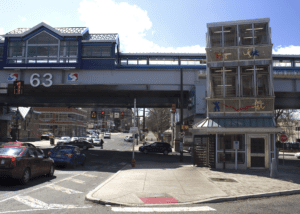
July, 5, 2021 – Communities identified by the Environmental Protection Agency (EPA) as Environmental Justice communities are more likely to experience issues that negatively impact pedestrian safety and result in higher rates of pedestrian fatalities from traffic crashes. According to PennDot, fatal or serious injuries from crashes are three times more likely to occur in low income communities and 30% more likely to occur in communities of color. These communities face real challenges to pedestrian safety including poor sidewalk conditions, lack of access to green space, and under funding for maintenance and safety enhancements.
Sidewalks are the foundation for walkability, and sidewalk condition is a major factor in deciding how people travel. Philadelphia has hundreds of miles of sidewalks in poor condition, with no concrete plan to fix them. The Council and its volunteer pedestrian advocacy group Feet First Philly work to improve the pedestrian environment in every neighborhood, protect the rights of pedestrians, and encourage walking as a mode of transportation, exercise, and recreation through public education, outreach, advocacy, and technical assistance to communities.
In 2020, Feet First Philly launched a sidewalk campaign to fund sidewalks like streets. Currently, homeowners are responsible for costly sidewalk repairs, which forms a barrier and liability for many residents who cannot afford to fix damaged sidewalks. Feet First Philly’s sidewalks campaign asks the city to set aside $500,000 to hire a full time sidewalks coordinator, conduct a sidewalk master plan, and create sidewalk repair funding strategy, as recommended by a 2018 Sidewalk Policy Transportation Community Development Initiative (TCDI) to the Office of Transportation & Infrastructure Systems.
Feet First Philly and the Council advocated for the sidewalk campaign through an op-ed in the Inquirer calling for the city to take action, by meeting with Councilmembers in preparation for budget season, and sending an action alert urging Mayor Kenney and City Council to fund sidewalks in the next budget. This spring, the Council and Feet First Philly joined 24 organizations advocating for Livable Communities budget requests, including dedicated funding for Vision Zero, transit, and sidewalks.
In addition to this budget campaign, the Feet First Philly Pedestrian Advocacy Guide connects people to city agencies and helps them navigate services to address safety concerns. Feet First Philly also developed two walk audit tools to engage residents, neighborhood leaders, students, and stakeholders to identify risks to pedestrians and connect residents to resources that can address these concerns.
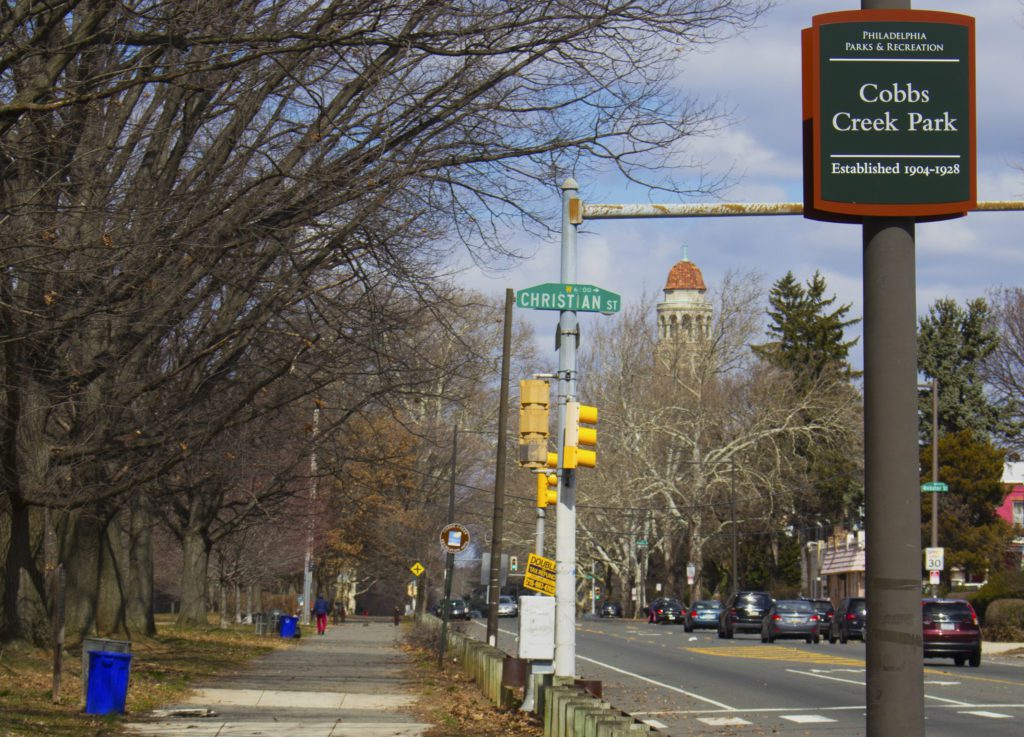
Highway design that prioritizes vehicle speed over pedestrian safety is a legacy issue that disproportionately affects communities of color in Philadelphia. Pedestrians accounted for just 7% of people involved in crashes from 2014 to 2018, but made up 40% of people killed in crashes during this period. Highly trafficked roads like Cobbs Creek Parkway make up the High Injury Network, the 12% of all Philadelphia roads that claim 50% of all traffic deaths and severe injuries.
For the past two years, the Council has connected residents, stakeholders, elected officials, and city agencies to work together to address the largest hurdle to accessing Cobbs Creek Park and Trail, which is the dangerous Cobbs Creek Parkway. The Parkway is a physical and mental hurdle for residents trying to access the park and connected trails and dangerous speeds, reckless driving, and lack of safe crossings are barriers that make the park and trail difficult and dangerous to visit. Tragically, the lives of three people were taken along the Parkway in the past year.
The Council partnered with Cobbs Creek residents to address their concerns and demand change. This resulted in the installation of speed hump and delineator posts. The Council continues to advocate for safety upgrades, and the City recently applied for funding to install new state of the art pedestrian crossings along Cobbs Creek Parkway. These would fill crossing gaps that stretch more than a mile and a half long and increase accessibility to this important trail and greenspace in one of the most dense areas of the city.
For more information contact Will Fraser, Transportation Project Manager, wfraser@cleanair.org
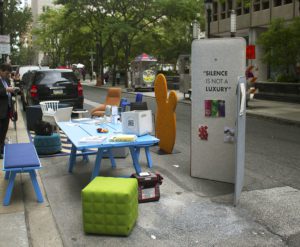
Philadelphia, PA [March 18, 2021] – Clean Air Council and Feet First Philly, in partnership with the Philadelphia Department of Public Health, are pleased to announce the recipients of our first pedestrian enhancement mini-grants. The chosen projects represent seven distinct neighborhoods and seven distinct strategies to address barriers to walking and rolling.
Chew and Chelten CDC/RCO – The project revamps an unoccupied newsstand with a community informed mural painted by a local artist Serafina Harris. The mural will exhibit, “images of positive and daring young black men and women stepping into a better future.”
Hunting Park Community Garden – Funding to be used to create an outdoor community space that includes tables, chairs, and a summer misting fan in partnership with the Free Library of Philadelphia and Lenfest Center.
Kensington Neighborhood Association – The Association plans to demolish and repour a concrete sidewalk that is currently damaged to create an “access point for any interested gardeners to come and enjoy the garden space.”
Cobbs Creek Ambassador Program – The project engages volunteers to “adopt sections of the park to clean up,” creating a model of hyper-local resident led stewardship with a low barrier to entry. Funding will go to “ambassador startup kits” that include cleanup essentials like, trash bags, gloves, shovels, rakes, brooms, and trash cans.
Village Arts and Humanities – Located in the Fairhill-Hartranft section of Philadelphia, received funding to install a creative art crosswalk to increase the visibility of a pedestrian space along a commercial corridor.
The Enterprise Center CDC in collaboration with Blackwell Regional Library in West Philadelphia will use mini-grant funds for a parklet project on 52nd Street featuring a “mix of both fixed and removable seating, greenery, and public art.”
Centennial East Parkside CDC working with WeWalkPHL will survey residents to identify both physical and social barriers to pedestrians when accessing West Fairmount Park from the Parkside neighborhood. The survey will take place during their Juneteenth celebration to “assess the neighborhood’s walkability, photograph and document problem areas, and brainstorm creative approaches.”
Read these quotes from some of the mini-grant recipients
“Centennial Parkside CDC is excited about the opportunities in receiving the Feet First Philly Pedestrian Mini-Grant. It will allow us to more thoroughly survey and shine a light on pedestrian safety as our organization becomes increasingly more aware, thus more sensitive to the needs of our community to improve safer walkability.” – Tashia Rayon, Program Director Centennial Parkside CDC
“I love Cobbs Creek. This is where I live, work, and play. That’s why I really care about keeping it beautiful. I had no idea resources like this mini-grant were available. When I started facilitating Power Hour Cleanups (where I engage other neighbors in cleaning up a section of Cobbs Creek that I’ve adopted), I just used my own resources for supplies but now, I don’t have to have that financial burden. More importantly, I can encourage other people to adopt and clean up their own section of Cobbs Creek and can use these funds to provide them with the right tools. I am so thankful to the Clean Air Council and Feet First Philly for making this possible.” – Temwa Wright, Cobbs Creek Ambassador Program
“The Enterprise Center CDC is excited to be awarded a Feet First Philly grant and to partner with Blackwell Regional Library to pilot a parklet at the library location on 52nd Street. Piloting new things and achieving small wins are the steps we must take as we work towards larger neighborhood revitalization goals over time. The 52nd Street business corridor is the ‘Main Street’ of West Philadelphia, and Blackwell Library is a key anchor institution along the corridor. We hope with this project to demonstrate innovative ways to engage businesses and community members while making the street a safer and more inviting place for doing business, shopping, and community gathering.” – Jesse Blitzstein, Enterprise Center CDC
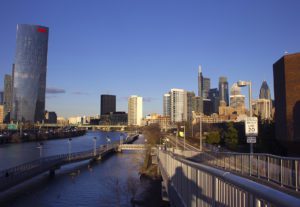
Last year was a difficult one for all of us, and the events that transpired in 2020 challenged every aspect of our society and our lives. Like many of the Council’s programs, the Council’s pedestrian advocacy group Feet First Philly was impacted, but the group adapted to meet the evolving needs of pedestrians. The pandemic reinforced the need for better public space conducive to walking and rolling, and Feet First Philly was a key voice in creating Philadelphia’s Recovery Streets program which pushed for more open streets and ways to better use public space during the health crisis.
Feet First Philly announced the release of its Pedestrian Advocacy Guide last Summer. The guide connects residents and community groups to existing city resources that are often tough to navigate. The guide helps individuals and civic organizations identify risks pedestrians face in their own neighborhoods and find solutions to address those issues with information about sidewalks, road conditions, parking, driver behavior, and quality of life issues that impact pedestrians.
Feet First Philly also partnered with Temple University’s Office of Sustainability in October to launch a Walk Audit Certification Program for students. Over twenty graduate and undergraduate students from five colleges including Fox School of Business and Tyler School of Art and Architecture participated in the certification program. The two-part training taught students how to evaluate the pedestrian experience and conduct a qualitative walk audit.
Park and trail lovers of all ages were invited to participate in a Virtual Scavenger hunt in November and December at four amazing Philadelphia parks. Visitors downloaded Bingo cards before heading to FDR Park, Cobbs Creek Park, Tacony Creek Park, and Grays Ferry Crescent Park and keeping social distance they looked for clues and posted pictures online. Lucky winners earned great prizes including backpacks and sunglasses while they spent quality time outdoors.
Feet First Philly also got a new logo in 2020! Follow Feet First Philly on Facebook, Twitter, and Instagram and let us know what you think of the new look.
The year ended strong with over 30 applications for Feet First Philly’s public space enhancement mini-grant. Submissions varied widely and showcased many interesting projects and ideas from civic groups in Philadelphia. Applications are currently being reviewed, and grantees will be awarded up to $2000 to fund their projects early this year.
Feet First Philly is Philadelphia’s only advocacy group dedicated to pedestrian rights. For more info on this group’s advocacy work including how you can get involved, contact Titania Markland at tmarkland@cleanair.org
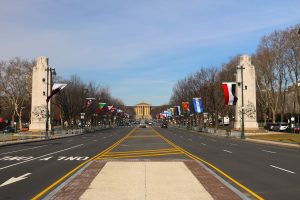
Clean Air Council, Feet First Philly, 5th Square, and the Bicycle Coalition unveiled a Recovery Streets platform to serve as a roadmap to safely transform street space in Philadelphia during and as we recover from COVID19.
This plan gives a menu of options for the types of solutions that the city should implement in the months ahead. While we applaud the City for its initial move to close MLK Drive to vehicle traffic, there has been little progress toward creating areas where people can safely be outside, or to address concerns regarding pedestrian safety along routes to essential businesses. These solutions will be increasingly more important as we start to recover from the COVID19 pandemic.
As businesses reopen, if these measures aren’t put into place Philadelphia will suffer worse congestion and gridlock than pre-COVID, and damages to air quality, road safety, and equity will be greater than before.
States are beginning to ease stay at home orders, and people are eager to be outside for necessity during the hot summer months, but they need to be able to do so safely. Unfortunately, pedestrian fatalities are nearly 88 percent higher in 2020 than this time last year. That is why now is the right time for Philadelphia to invest in its residents and implement measures that reduce crashes and keep pedestrians out of harm’s way.
Philadelphia’s COVID19 recovery is a chance for the City to be a leader in this space and move toward the Mayor’s Vision Zero Goals. Please take the time to read our Recovery Streets platform to learn how we believe the City of Philadelphia can be a leader in COVID19 recovery. Click here to read our full platform then sign our petition in support.
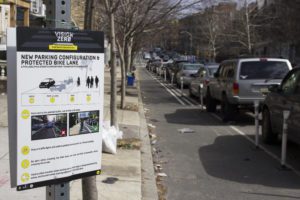
Clean Air Council joined the Bicycle Coalition and other Vision Zero Alliance advocates for a day of action on Tuesday, April 30th in Harrisburg. Advocates spoke to State Representatives and Senators about critical legislation needed to make streets safer for all road users.
If passed, this legislation would allow comprehensive integrated protected bike lane networks throughout Pennsylvania, create safe cycling and pedestrian spaces, and reduce dependence on automobiles. Protected bike lanes make bicycling safer, and are one of the best ways to protect pedestrians.
Pennsylvania State Senate Bill 565 (SB 565) and its companion House Bill 792 (HB 792) would allow pedestrian plazas and bike lanes on state roads to be separated and protected by parked cars. The bill was sponsored and introduced yesterday by 1st District State Senator Larry Farnese of Philadelphia.
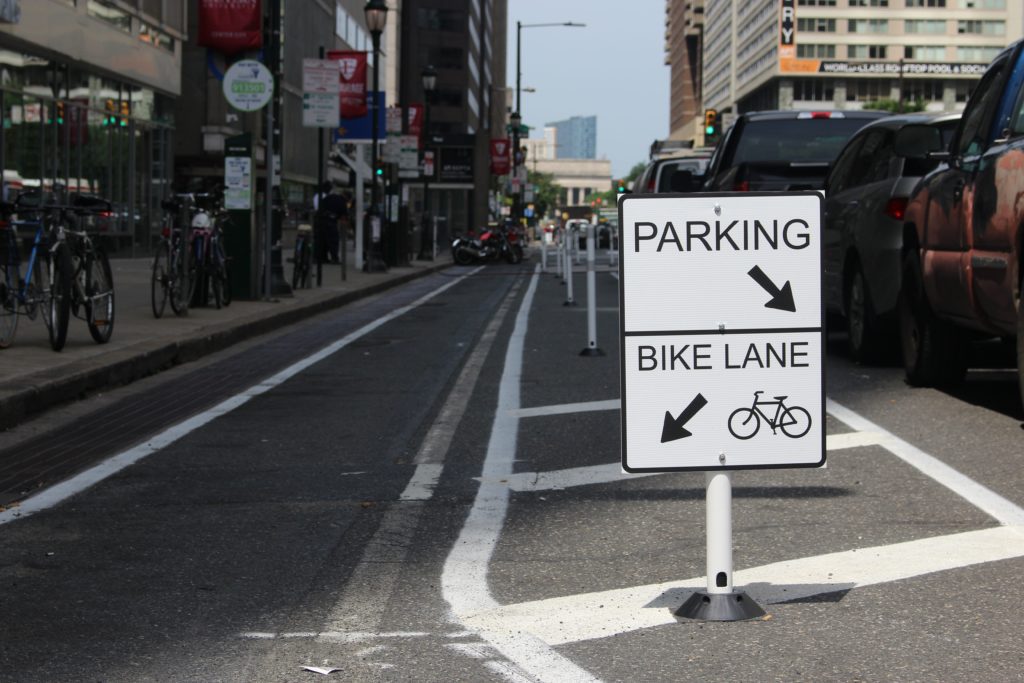
On state roads, pedestrians are 6.5 times more likely to die in crashes than non-pedestrians. While similar numbers of pedestrians involved crashes occur on local roads, 75% of pedestrian crashes that result in a fatal injury are on state roads. Protected bike lanes reduce traffic speeds by narrowing the road, calm intersections by reducing the turning radius, and create a shorter crossing distance for pedestrians.
House Bill 37, another important bill the Council advocates for, would ban hand-held cell phones while driving. The Fredricks family, whose daughter Emily was killed on her bicycle by a distracted driver while biking in the bike lane near 11th and Spruce Streets in Center City, spoke to legislators about their daughter and asked Senators and Representatives to pass legislation to prevent other families from experiencing similar tragedies. Distracted driving caused by cell phone use is a major cause of bicycling and pedestrian fatalities in Pennsylvania, and quadruples the risk of a crash. The Council asked legislators to join neighboring states New Jersey, Delaware, and Maryland in banning hand-held phones while driving.
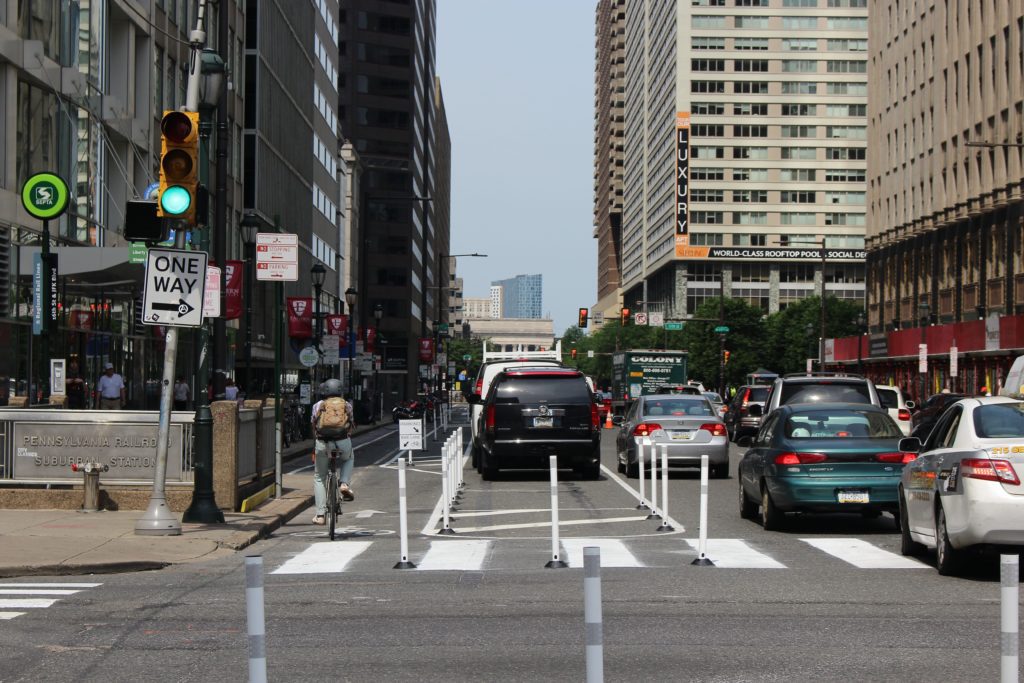
The Council also asked legislators to bring two bills to the floor that would have a major impact on road user safety. The first, a radar bill, (HB-1275) would allow municipal police to use radar technology. Pennsylvania is currently the only state in the country that does not allow municipal police from using radar to detect vehicle speeds. Speed is the largest predictor of how serious a crash can be. The difference of just 5 or 10 miles an hour can mean life or death.
Pennsylvania can more effectively slow drivers down by putting radar technology in hands of law enforcement across the Commonwealth. The second bill, yet to be introduced, would protect vulnerable road users including pedestrians, motorcyclists, horse and carriages, farm equipment, and others by requiring a minimum of four feet to pass. Many parts of the state do not have sidewalks, especially on the particularly dangerous state roads, and vulnerable road users must be afforded the protection of a minimum passing distance.
Creating safer roads for everyone is a common theme throughout all the bills presented to legislators on this day of action. Everyone has the right to travel safely, and a bipartisan focus on reducing traffic deaths, will create safer roadways for all users.

